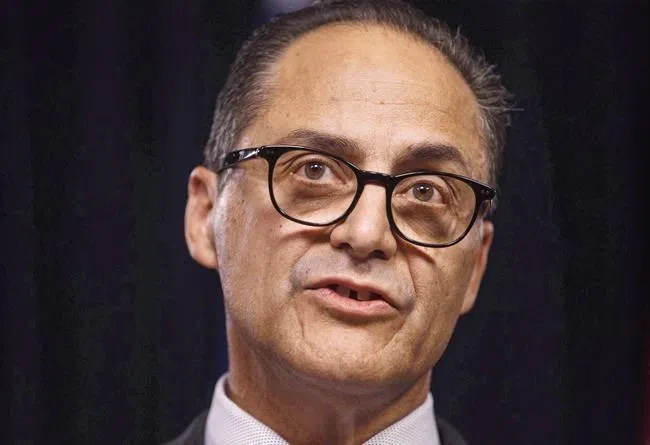
Alberta revises deficit to $7.5 billion, grapples with oil price differential
EDMONTON — Alberta’s finance minister says the widening gap in the price Canadian oil is fetching won’t affect this year’s budget, but if left unchecked it will mean hard times ahead.
“Alberta’s energy industry drives the national economy, and a hit to Alberta’s bottom line is a hit to the Canadian economy,” Joe Ceci said Friday after releasing the second-quarter update for the provincial budget.
“The oil price differential is a crisis for Alberta and a crisis for Canada. The federal finance minister called it a national problem. I agree.”
Alberta oil is fetching far less by comparison on the market due to a supply glut, growing inventories and a pipeline bottleneck.
